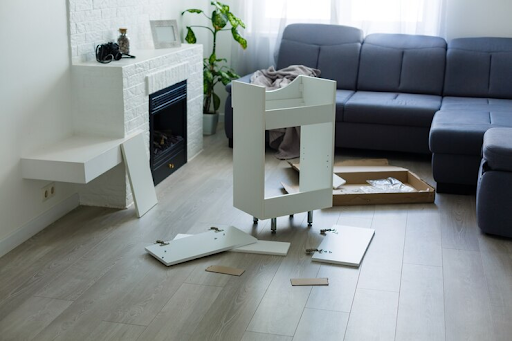Indoor air quality (IAQ) and efficient household waste management are crucial aspects of maintaining a healthy and sustainable living environment. By addressing these areas proactively, homeowners can create a safer and more comfortable space for themselves and their families. This article explores effective strategies for managing IAQ and handling household waste, focusing on radon testing and disposal bin rental as key components.
Understanding Indoor Air Quality
Indoor air quality refers to the cleanliness and purity of the air inside a building or structure. Poor IAQ can lead to various health issues, including respiratory problems, allergies, and even long-term health risks. Factors contributing to poor IAQ include inadequate ventilation, indoor pollutants from cooking, cleaning products, and building materials, as well as outdoor pollutants that infiltrate indoor spaces.
Importance of Radon Testing
Radon is a naturally occurring radioactive gas that can seep into homes through cracks in the foundation, walls, and floors. It is odorless and invisible, making it undetectable without proper testing. Prolonged exposure to high levels of radon increases the risk of lung cancer, making radon testing a critical step in maintaining healthy indoor air quality.
Radon testing methods include short-term and long-term tests. Short-term tests provide a snapshot of radon levels over a few days to several months, while long-term tests monitor levels over more than three months, providing a more accurate average.
Conducting Radon Testing
Homeowners can conduct radon testing using do-it-yourself kits available at hardware stores or by hiring certified professionals for more comprehensive testing. Testing should be done in the lowest livable area of the home, such as the basement or ground floor, where radon levels are typically highest. Depending on the results, mitigation measures such as sealing cracks in the foundation or installing a radon mitigation system may be necessary to reduce radon levels to safer thresholds.
Managing Household Waste Efficiently
Effective waste management not only promotes cleanliness but also contributes to environmental sustainability. Improper disposal of household waste can lead to pollution, health hazards, and the depletion of natural resources. By adopting responsible waste management practices, homeowners can minimize their environmental footprint and contribute to a cleaner community.
Benefits of Disposal Bin Rental
Professional disposal bin rental services offer convenient solutions for managing large volumes of household waste, renovation debris, or yard waste. These bins come in various sizes to accommodate different types of projects, from minor renovations to major cleanouts. Renting a disposal bin provides homeowners with a cost-effective and efficient way to dispose of waste responsibly, ensuring that materials are properly sorted and recycled whenever possible.
Choosing the Right Disposal Bin
When renting a disposal bin, consider the size and type of waste you need to dispose of. Smaller bins are suitable for household cleanouts or minor renovations, while larger bins are ideal for construction projects or extensive yard work. Ensure that the rental company complies with local regulations regarding waste disposal and recycling practices to minimize environmental impact.
Best Practices for Household Waste Management
Implementing effective waste management practices begins with reducing waste at the source. Consider purchasing products with minimal packaging or opting for reusable alternatives to disposable items. Sort recyclable materials such as paper, plastics, glass, and metals into designated bins for recycling collection. Composting organic waste like food scraps and yard trimmings reduces landfill waste and produces nutrient-rich compost for gardens.
Hazardous Waste Disposal
Dispose of hazardous household waste, such as paints, solvents, batteries, and electronics, through designated collection programs or drop-off locations. These materials require special handling to prevent environmental contamination and ensure compliance with local regulations. Avoid mixing hazardous substances with regular household waste and educate household members about safe disposal practices to minimize risks.

